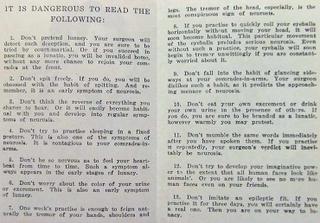voting rights
The United States stands virtually alone among democracies in having laws that continue to disenfranchise former prisoners even after they have paid their debts to society and finished parole or probation. A vast majority of the nearly five million citizens who were barred from voting in the last presidential election would have been free to vote in Australia, Britain, France and Canada.
Like so much of what ails America, laws that strip felons of the right to vote are rooted in race. The South enacted these restrictions during the late 19th and early 20th century as part of a sweeping effort to limit black political power. This ugly legacy is painfully evident in statistics showing that black people account for about 40 percent of disenfranchisement cases and only about 12 percent of the population.
Indeed, in the half-dozen states that have the strictest postprison sanctions, an astounding one in four black men have permanently lost the right to vote.
But the argument that felons should be permanently cast out of the body politic is losing its grip in many Northern and Midwestern states where Democrats and Republicans have proved equally willing to revisit and relax disenfranchisement laws.
In Iowa, the governor recently signed an executive order restoring voting rights to felons who complete their sentences. In Nebraska, the Legislature voted to replace a voting ban for convicted felons with a system that automatically restores their rights after they complete their sentences and pass through a two-year waiting period.
The Nebraska case is all the more interesting because the law was embraced by conservative Republican legislators who helped override the governor's veto. An emotional high point in the debate came when State Senator Lowen Kruse, a retired pastor, told his colleagues about a neighbor who had been out of jail 10 years and had become a family man with a good job - "just the kind of person you want within your community." The man, he said, deserved to have his vote automatically returned instead of being forced to beg a board of pardons to restore his rights. "I would rather keep my dignity," Senator Kruse said, "and I would much rather that we allow him to keep his dignity and help him to move on."
from CURE
janet


